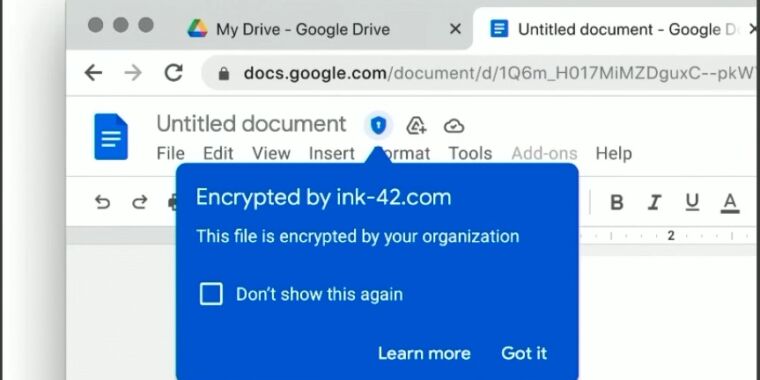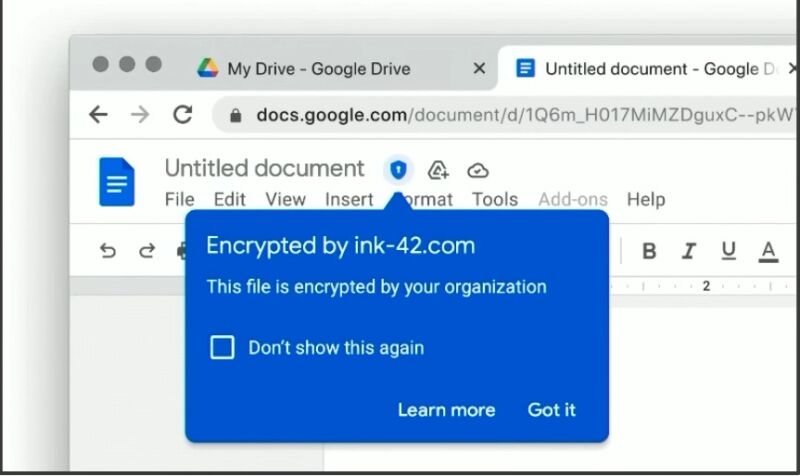

Enlarge (credit: Google)
On Tuesday, Google made client-side encryption available to a limited set of Gmail and Calendar users in a move designed to give them more control over who sees sensitive communications and schedules.
Client-side encryption is a generic term for any sort of encryption that’s applied to data before it’s sent from a user device to a server. With server-side encryption, by contrast, the client device sends the data to a central server, which then uses keys in its possession to encrypt it while it’s stored. This is what Google does today. (To be clear, the data is sent encrypted through HTTPS, but it's decrypted as soon as Google receives it.)
Google’s client-side encryption occupies a middle ground between the two. Data is encrypted on the client device before being sent (by HTTPS) to Google. The data can only be decrypted on an endpoint machine with the same key used by the sender. This provides an incremental benefit since the data will remain unreadable to any malicious Google insiders or hackers who manage to compromise Google servers.

No comments:
Post a Comment